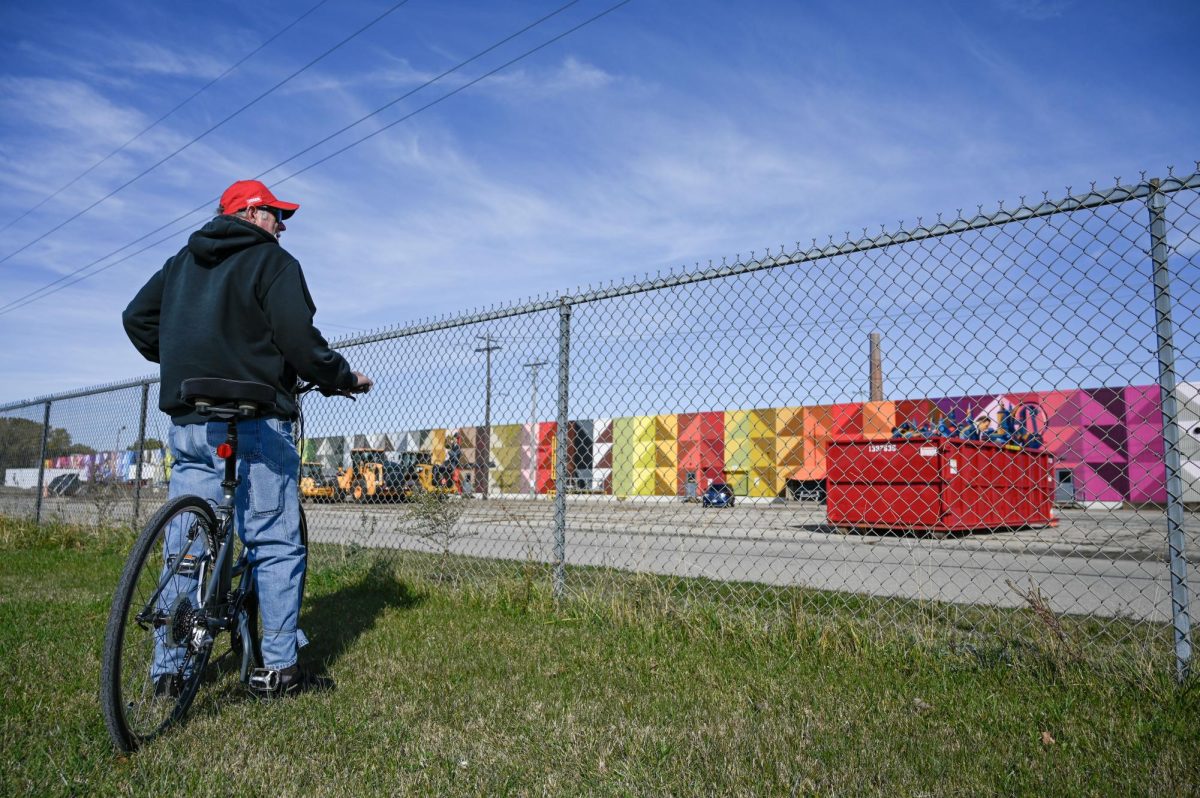The Oshkosh Common Council approved the voluntary Residential Rental Inspection Program on Sept. 13, which will provide safe, decent and sanitary living conditions for UW Oshkosh students and community member tenants.
“This is an opportunity to ensure that when parents drop their students off, or when students are looking for a place to live, there isn’t going to be any surprises waiting for them; they are going to be living in a safe place,” City Council member and UWO student Ben Stepanek said.
According to Stepanek, the program was initiated about three years ago because the city found a large number of code complaints and violations in rental units, which led to an overall bad impact on the surrounding areas. He said this ordinance will help hold property owners responsible for maintaining their units and protect tenants against unsafe conditions.
Stepanek said each unit will receive a letter at least 21 days prior to the inspection date, at which time the tenants can set up a time and date that works best for the unit’s inspection.
In a 6-1 vote, city council member Caroline Panske opposed the draft because she was concerned about the city’s ability to form an inspection program committee, implement the program and educate the public before it goes into effect.
According to Stepanek, the city of Oshkosh Inspection Services Division program will kick off starting Jan.1, 2017, and will focus on the UWO campus area first.
“The city is going to be broken apart into five districts and [the inspectors] will do a different district every year,” Stepanek said.
According to the Residential Rental Contact Registration and Inspection Program document under Section 16-51, properties that are excluded from this program include: rest homes, convalescent homes, nursing homes, hospitals, assisted living centers, community based residential facilities, university-owned student dormitories or adult family homes.
UWO senior Micaela Burns, who rents through Star Properties, said she is not happy with the approval of the rental program because she believes the city will charge the landlords a lot of money, which in turn will be passed down to the tenants.
“If the landlords are charged additional money for the program, there is no doubt in my mind they will make us pay for these fees,” Burns said. “This program seems like a good excuse to let landlords charge students more than they already do.”
Spanek said landlords will be charged $150 per unit every five years, and that it is the landlord’s prerogative to decide whether or not to pass down the fee to their tenants.
“If they would choose to do that, breaking it down per month, it comes to about $2 a month and if there are four or five people in the house it would be about 50 cents a month per person,” Stepanek said. “So, when they say rents are going to skyrocket because of this [program fee], I just don’t think that is true.”
Burns said she will likely not participate in the inspection program because she doesn’t like the idea of inspectors invading her privacy.
“I understand their job is to only look for code violations and other problems, but I just wouldn’t want them wandering around my house regardless,” Burns said.
UWO Student Legal Services Attorney Eric Forsgren said anything that exists, even without guarantee, to increase the quality of housing for both students and community members is a good thing, even if it means giving up some privacy.
“It is a good thing even if there is some incremental on the invasion of their privacy argument is are there going to be inspectors coming in? Yes. But you have to give up a little bit of [privacy] to ensure some safety,” Forsgren said.
Stepanek said the inspection program is a voluntary program and if students feel uncomfortable letting inspectors into their homes, they do not have to.
“I would encourage students to let the inspectors in so they can do their job,” Stepanek said. “They aren’t there to bust you or anything like that, they have a checklist of things they are checking the property for, but ultimately the tenant has the right to let them in or refuse them as well.”
If a tenant refuses to have an inspection done, it will take place from the sidewalk, Stepanek said.
“The inspector will look for what they can on the exterior of the building and then the landlord will still be assessed and given the inspection fee,” Stepanek said.
Stepanek said when an inspector comes they will have a checklist of areas to look for, and if the unit has any violations the landlord will be responsible for fixing the issues in a timely matter, which is up to the discretion of the inspector.
“Inspectors may issue citations depending on how severe the problem is, but it is up to the individual inspector,” Stepanek said. “I think really what the program is trying to say is, ‘we noticed this was wrong and you need to get on top of it.’ It is not this massive conspiracy to start handing out citations, it is more working with the landlord to help fix the issue.”
UWO senior Jakob Frederick, who rents from Discovery Properties, said he is glad this program got approved because he believes the house he lived in last year was not up to code.
“You could tell just by looking at the outside of the house, and if you went down to the basement, our house wasn’t on the foundation straight,” Frederick said. “You could walk into the corner [of the basement] and actually see the sunlight come into the house.”
Stepanek said some of the opposition to this program is because community members and landlords are confused about the program.
“I think the heat of the debate was misconception over Fourth Amendment rights, which I don’t think applies in this situation,” Stepanek said. “I don’t think [violating the Fourth Amendment] is a concern and our policy really addresses that. Look, if you haven’t been keeping your house up to code and you haven’t been keeping the minimum safe codes your house should have, you’re probably in trouble.”
Stepanek said, the program will cost roughly $1.8 million over the next five years, and he believes another misconception about the program is that the city is using this program as a money scheme.
“That is not true at all,” Stepanek said. “The revenue that comes from the inspection is actually just going to fund the inspection program. It will be used to hire the inspectors [and] pay for their time.”
Frederick said he doesn’t see any major flaws with the program, and will participate in the inspections because he see it as a way to hold landlords responsible for their properties.
“We get charged enough for rent and we deserve a house that is at least up to code and the inspectors are just making sure the landlords, particularly the big ones that own a lot of property, are keeping our houses up to code and are keeping us safe,” Frederick said.








